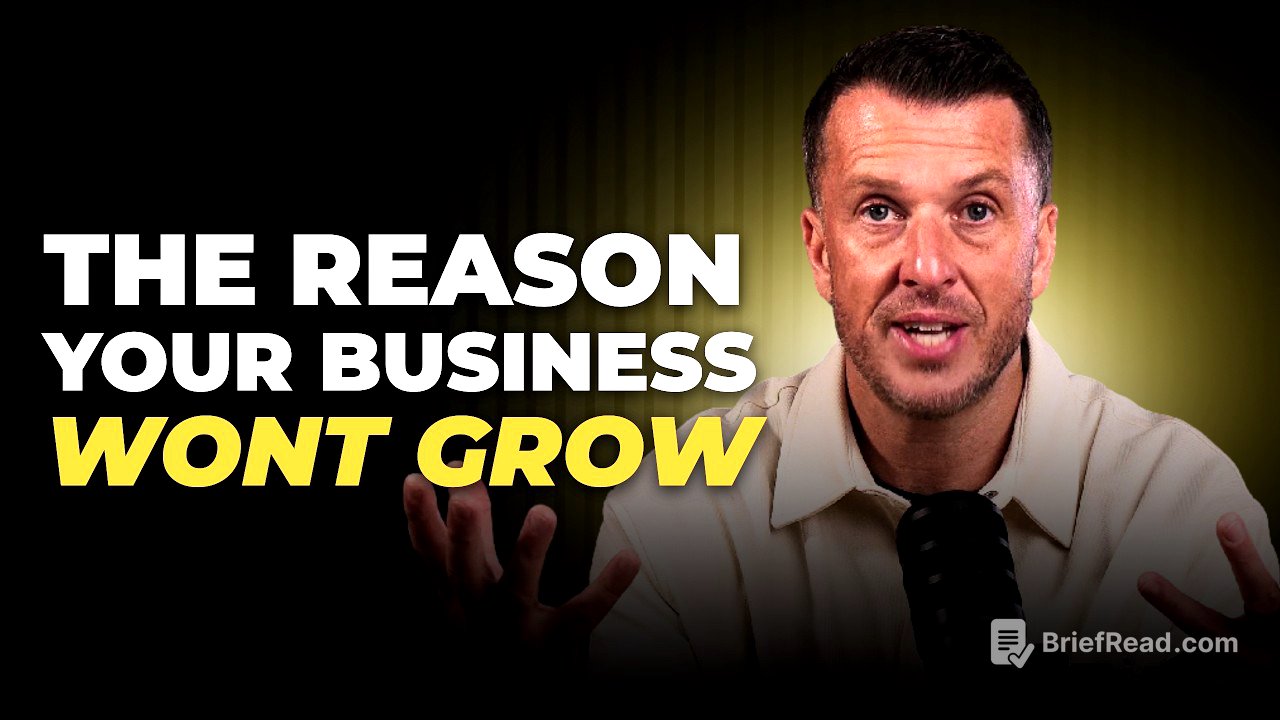TLDR;
This video discusses the importance of planting and nurturing the "seeds" of ideas and talents that God has given you. It emphasizes that these seeds, if planted in the right soil and properly cultivated, can produce a bountiful harvest, benefiting both you and the Kingdom of God. The video outlines practical steps to identify the right soil, which involves understanding the needs and "hunger" of others, and developing systems to support growth and multiplication. It also warns against the dangers of hoarding these seeds out of fear or perfectionism, urging viewers to take action and participate in a free 5-day digital launch challenge to help them plant their ideas effectively.
- God gives you a seed (idea/talent) before a harvest.
- Many people fail to plant their seeds in the right soil.
- Kingdom growth requires planting where there is hunger and building systems for multiplication.
Introduction: The Seed Time Blueprint [0:00]
The speaker introduces the concept that God always provides a seed before a harvest, emphasizing that many people fail to utilize these seeds effectively. These seeds represent business ideas, creativity, or skills deposited into one's spirit. The speaker references Isaiah 55, highlighting that God's word, like rain, is meant to accomplish a purpose. The speaker aims to provide a "seed time blueprint" to transform God-given ideas into multiplying harvests, aligning with God's will.
Kingdom Law: The Parable of the Sower [0:53]
The speaker references the parable of the sower from Matthew 13, explaining that it reveals a kingdom law: God expects a return on what He invests in individuals. People have been "seized" for impact and "arrested" for a kingdom adventure. Drawing from Philippians, the speaker encourages viewers to take hold of what Christ has taken hold of them for. The success of the seed depends on the soil, with potential outcomes ranging from nothing to a hundredfold increase. The speaker contrasts two types of people: those who multiply their seed into thriving businesses and those who hoard it, waiting for more guidance.
The Wrong Soil: Lack of Foundational Roots [1:57]
The speaker asserts that Christian entrepreneurs often fail not due to a lack of talent or calling, but because they plant in the wrong place. The speaker describes a common scenario where individuals focus on superficial aspects like logos and Instagram handles without establishing foundational roots and internal systems. Referring to Matthew 13, the speaker likens this to seeds falling on rocky places, where initial joy is short-lived due to a lack of root depth. The speaker introduces a free 5-day challenge designed to address this problem.
Intentional Growth: Planting Where There's Hunger [3:10]
The speaker emphasizes that finding the right soil is intentional, not random. Kingdom growth follows an order: first, plant where there is hunger, meaning the idea should solve a real problem. If there is no demand, the beauty of the offering is irrelevant. The speaker advises understanding that the root must come before the fruit, urging viewers to ask real people what they are willing to pay for. A system should be implemented to allow growth and fruit-bearing even while one is at rest. The speaker references Ecclesiastes, advocating for casting bread on many waters.
Multiplication: Avoiding Wickedness by Shipping Your Seed [4:31]
Drawing from Genesis 1:28, the speaker highlights God's intention for fruitfulness with multiplication. Referencing the parable of the talents in Matthew 25, the speaker condemns burying one's seed as wickedness and foolishness. The speaker urges viewers to "ship it," meaning to bring their ideas and knowledge to the world to bless the nations. The speaker promotes a free 5-day digital launch challenge starting soon, aimed at planting ideas in the right soil, validating them, packaging them for marketability, and placing them in a marketplace with millions of buyers.
The Cost of Not Planting: Apprehending Your Purpose [5:41]
The speaker urges viewers to consider the cost of inaction, warning that holding onto the seed leads to stagnation and future regret. Others will move forward, learning and growing, while the unplanted seed yields nothing. The speaker emphasizes that God expects a harvest from the seeds He provides. Referencing James 4:17, the speaker states that knowing the good one ought to do and not doing it is a sin. The speaker encourages viewers to overcome delays and recognize that their idea is a seed from heaven. The speaker concludes by urging viewers to plant, steward, and multiply their seeds, crushing fear and perfectionism, and trusting that faithfulness with little leads to much.









